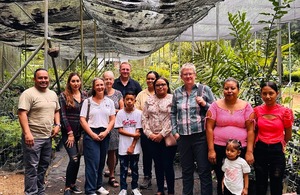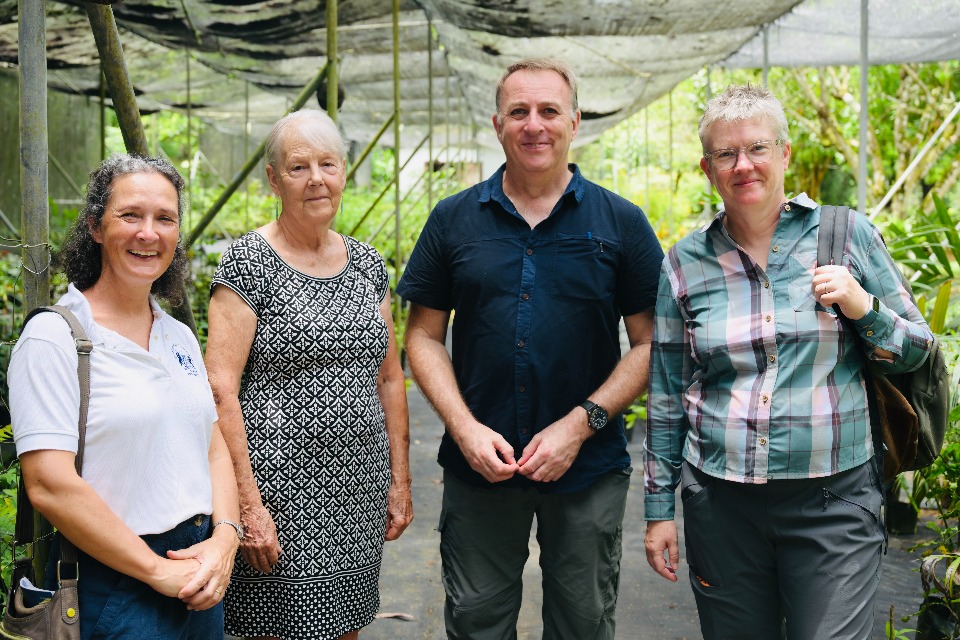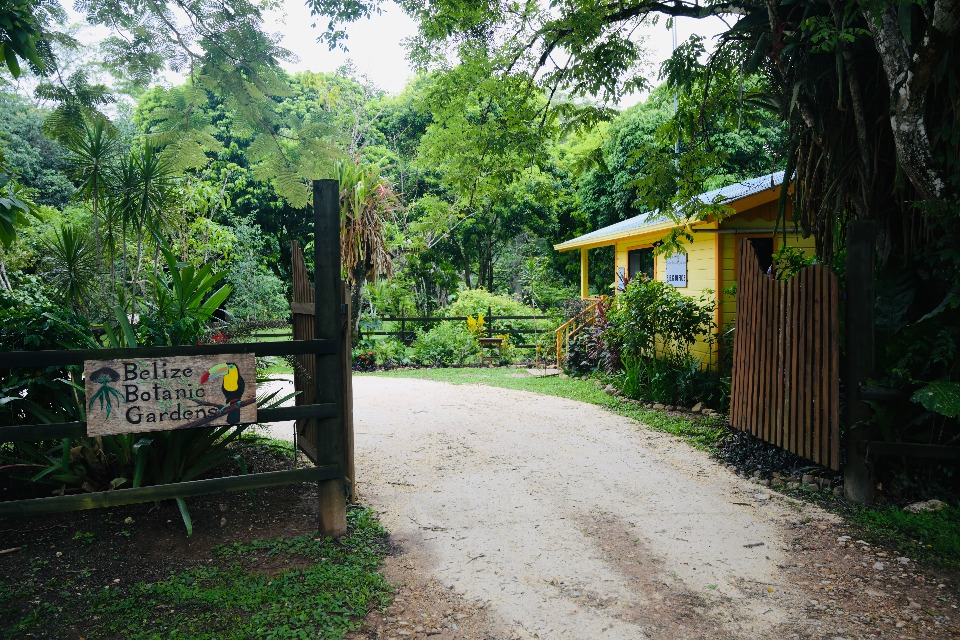UK funds Darwin Initiative Innovation Project in Belize
The project “Upscaling innovative ‘planting-baskets’ to restore landscape diversity, and enhance climate-resilient livelihoods” is a Darwin Initiative Innovation Project, funded through the UK government’s Biodiversity Challenge Funds.

The new project helps farmers grow more of Belize’s native plants and trees, enhancing their livelihoods and helping them adapt to climate change.
The UK Government, through its Biodiversity Challenge Funds, will be helping the next generation of smallholder farmers in Belize to benefit from new trials in growing a wider range of local native plants and trees. Dr Neil Stuart, an academic based at the University of Edinburgh, who devised the project, explains:
When we think about farming, having ‘all your eggs in one basket’ can be a risky strategy, if that one crop is affected by drought, pests or falling prices. Belize has many native plants that are well adapted to the local climate, but not everyone knows how to grow them. In this project we will carry out growing trials, and set up a series of demonstration sites across Cayo District with native plants that can be grown well, so farmers will be encouraged to grow a more mixed range of local plants for food, shelter, and with the possibility to sell any surplus.

The project will be implemented by the lead in-country partner Belize Botanic Gardens (BBG) and will involve expanding nursery cultivation and running planting trials at BBG, and then establishing four demonstration ‘agro-forestry’ gardens across the Cayo District. Judy Duplooy, Director of BBG, sees this an opportunity to apply the Garden’s track record in growing native as well as exotic plants, in a very practical way. She states.
Since the pandemic, the demand to learn how to grow your own food has soared. Last year, we ran a small project called ‘Gardens to Go’ in which people received a starter ‘planting basket’ and training how to grow them. We were amazed by the interest in growing, even if it was just in their backyard. This new project will allow us to scale up the variety of plants and training we can provide from our nursery, and create a series of permanent demonstration plots at our partner institutions.
Rudy Aguilar, Co-Director and Head Gardener at BBG, who has been a regular face on Cayo TV’s ‘The Garden Show’, adds:
It’s not that farmers don’t want to change their ways, or don’t understand the threats from climate change. They just don’t want to take the risk of trying something untested, on their own. So that’s why this new project will focus on providing them the know-how so they can plant and grow the seedlings we provide to them, and then with additional training, they will be able to continue growing more successfully.
British High Commissioner to Belize, H.E. Nicole Davison, on her first visit to the BBG notes:
This project comes at a pivotal time as the challenges of food security continue to affect Belize, Latin America and the Caribbean, and the world. We are delighted that this two-year project, made possible through the UK Government’s Biodiversity Challenge Funds, will foster greater collaboration among academia, NGOs and small farmers. Similar projects are being funded worldwide as the UK continues to lead global efforts in the fight against climate change and biodiversity loss. From a regenerative and sustainable standpoint, generations of Belizeans will benefit from growing their own food using modern techniques aimed at restoring biodiversity and achieving better food security.
Apart from working with pioneering farmers, and continuing the backyard gardening initiative for people who don’t have their own farmland, the project will establish demonstration gardens at Belize Botanic Garden, and also at Galen University and at Mopan Technical High School, so students and school children can learn about these lesser grown native plants and trees.
Denaie Swasey explains:
The project objectives align with Galen University’s commitment to the achievement of the United Nations Sustainable Development Goals (SDGs) for Climate Action and Life on Land. Galen’s partnership with the Belize Botanic Garden will enable its students to attain first-hand knowledge of national initiatives for Forest Conservation and Management inclusive of plant identification, forest restoration and agroforestry. The program further enhances the knowledge and skill base for students within the University’s Environmental Science Program to better serve the country of Belize as environmental advocates.
The project also includes plans to create an agro-forestry demonstration in the Vaca Forest Reserve, for educating local farmers with the support of Friends for Conservation & Development (FCD).
Dr Zoë Goodwin, an expert from the Royal Botanic Garden Edinburgh (RBGE) who has worked in Belize for many years, explains that “by including some endangered trees and plants in these baskets of plants, we can promote the growing of more endangered species, which helps to restore biodiversity to the landscape”.

Duncan Macqueen, Head of Forestry at the International Institute for Environment & Development (IIED) phrases it in a different way:
We all need to eat, and we all need to make a living; this project is about thinking how smallholder agriculture can be part of a plan for restoring biodiversity to some of these degraded landscapes, and giving individuals incentives to do this.